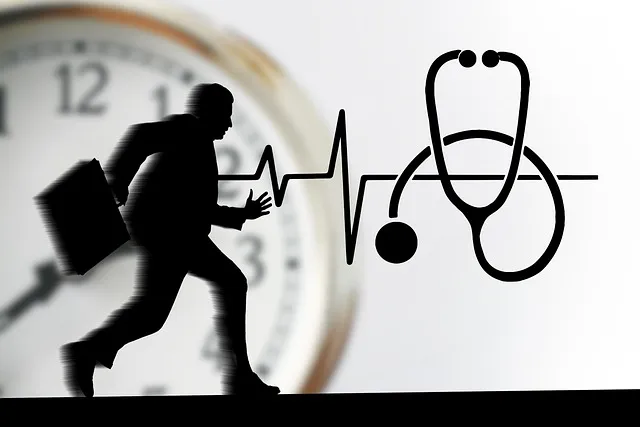Englewood Kaiser Permanente's stress management workshops, facilitated by psychiatrists, focus on interactive activities and tailored content for diverse audiences. Selecting peaceful venues, managing logistics like emergency contacts (Englewood Kaiser Permanente psychiatry phone number), and offering varied activities enhance engagement and learning experiences. Regular evaluation through feedback mechanisms allows for continuous improvement, ensuring programs remain relevant and effective in meeting participants' mental wellness needs.
Stress management workshops play a pivotal role in enhancing employee well-being. This article guides you through effective organization of such sessions, focusing on key aspects like planning and preparation, engaging facilitation techniques, and evaluating impact. Learn best practices to create workshops that empower participants, drawing from the expertise of Englewood Kaiser Permanente’s psychiatry department (phone number available upon request). Discover strategies for continuous improvement to ensure lasting positive change in your workplace.
- Planning and Preparation for Stress Management Workshops
- Facilitation Techniques and Engaging Activities
- Evaluating Impact and Continuous Improvement Strategies
Planning and Preparation for Stress Management Workshops

Planning and preparation are key to successful stress management workshops. The first step is to identify the target audience and tailor the content accordingly. Engaging participants from diverse backgrounds, such as employees at Englewood Kaiser Permanente or individuals seeking mental wellness through a podcast series production, requires a comprehensive approach. Organisers should consider including interactive activities, group discussions, and practical exercises to cater to different learning styles.
Additionally, selecting an appropriate venue that aligns with the workshop’s theme is essential. A tranquil setting can promote relaxation and encourage open conversations about mental health. During preparation, ensure smooth logistics by confirming the psychiatry phone number for emergency contacts and arranging any necessary equipment. Effective planning will create a positive environment, fostering confidence-boosting experiences for all participants.
Facilitation Techniques and Engaging Activities

In stress management workshops, facilitation techniques play a pivotal role in creating an engaging and therapeutic environment. Interactive activities such as group discussions, guided meditations, and mindfulness exercises are instrumental in helping participants process their emotions effectively. These methods encourage active participation, fostering a sense of community and shared learning among attendees. For instance, engaging in open conversations allows individuals to share their experiences, providing valuable peer support and practical insights into stress coping mechanisms.
The incorporation of diverse activities tailored to different learning styles is essential for capturing the interest of all workshop participants. Incorporating creative outlets like art therapy or music can offer unique avenues for expression and emotional release. Such inclusive practices not only cater to various preferences but also enhance overall engagement, making the workshops more dynamic and memorable. This hands-on approach ensures that attendees, such as those seeking trauma support services or struggling with anxiety relief, remain invested in their personal growth journey throughout the session.
Evaluating Impact and Continuous Improvement Strategies

Evaluating the impact of stress management workshops is a crucial step in ensuring their effectiveness and continuous improvement. Organizations like Englewood Kaiser Permanente’s psychiatry department can lead the way by collecting feedback from participants through surveys, one-on-one interviews, or focus groups. This data provides valuable insights into what worked well and areas for enhancement. By analyzing these findings, they can identify key aspects that resonate with attendees, such as specific coping skills development techniques or self-awareness exercises.
For instance, a successful strategy might involve incorporating interactive activities that encourage participants to apply learned concepts in real-life scenarios. This could be further refined by integrating risk management planning for mental health professionals, ensuring they feel equipped to handle challenges beyond the workshop setting. Continuous improvement is an ongoing process that involves regularly reviewing and updating the program based on these insights, fostering a dynamic environment that meets the evolving needs of both participants and professionals in the field.
Stress management workshops, meticulously planned and facilitated, can significantly improve employee well-being. By incorporating engaging activities and evaluating impact through continuous improvement strategies, organizations like Englewood Kaiser Permanente can empower their teams to handle stress effectively. Remember, access to skilled psychiatry services, such as those available by phone, is a valuable resource that complements these initiatives. Through dedicated planning and ongoing assessment, workshops can become powerful tools for fostering a healthier, more productive work environment.






